At the end of Kim Adonis’s sterling and startling performance of Mike van Graan’s latest play, My Fellow South Africans, she sings a poignant rendition of John Lennon’s timeless anthem, Imagine. The song is repurposed to talk to our current condition in South Africa, and implores the listener to:
Imagine no more hunger
Decent work for all
No more children dying, young
Women standing tall
Imagine all our people
Living as humans should
Imagine life without fear
No more need for walls
Hate and anger banished
Ready smiles for all
Imagine all the people
Sharing in our land
You may say I’m a dreamer
This weekend I watched the play in Johannesburg in the wake of the terrible fire at 80 Albert Street that has so far claimed nearly 77 lives. In the days since there has been much outrage, introspection and analysis: “A disaster waiting to happen” is what most people agree. As usual, civil society has set up the frontlines of a relief project, one that treats the victims as human beings.
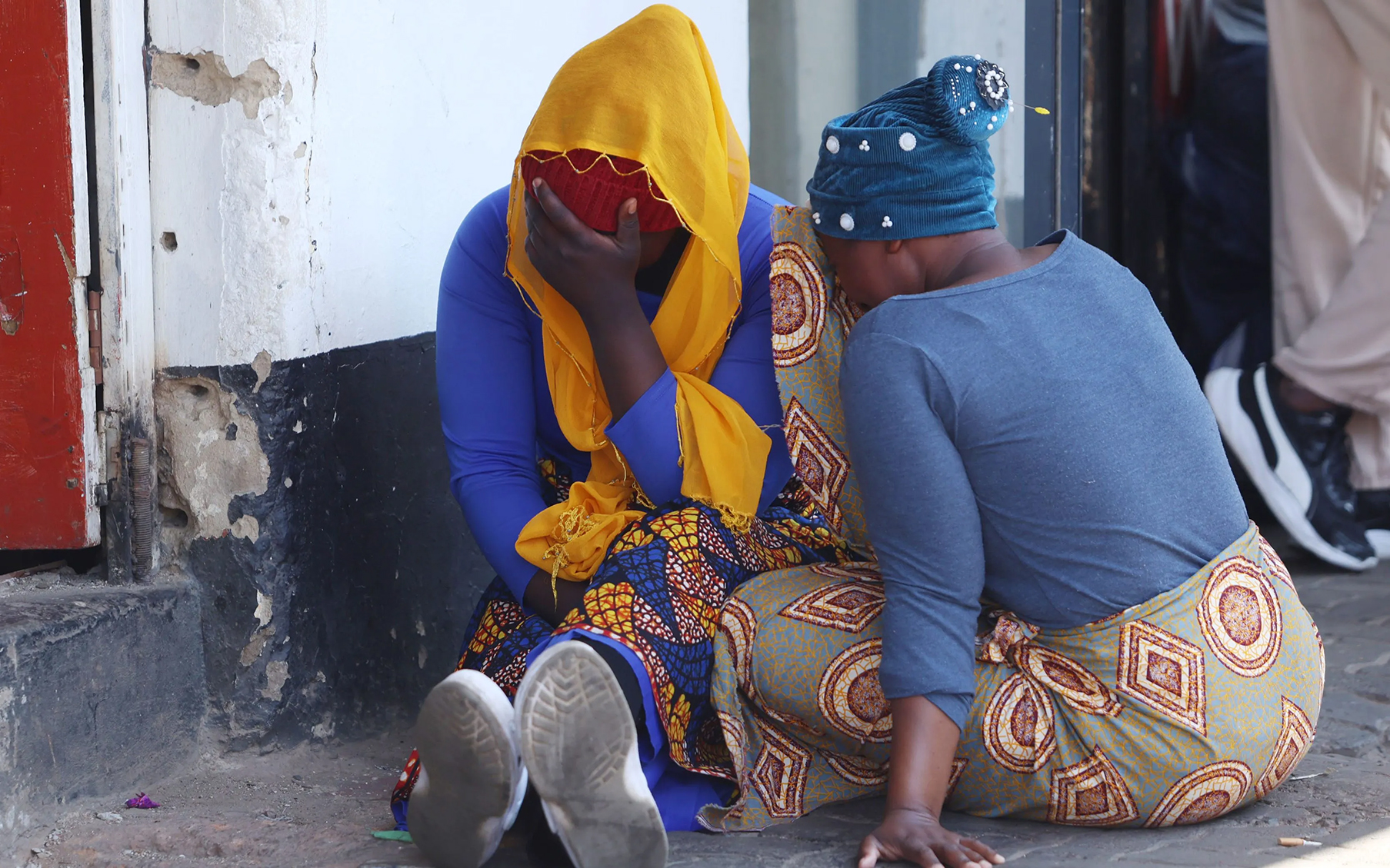 Grieving relatives of the fire victims near the burnt-out building in Johannesburg on 31 August 2023. (Photo: Felix Dlangamandla)
Grieving relatives of the fire victims near the burnt-out building in Johannesburg on 31 August 2023. (Photo: Felix Dlangamandla)
Sadly, from the people occupying a variety of high government offices there has been callous migrant-blaming, xenophobia, threats against NGOs and a clampdown on migrants living in nearby buildings: see here and here.
But, as Wits prof Alex van den Heever puts it in an op-ed in Daily Maverick yesterday:
“The question this narrative desperately tries to avoid is how a government, with all its powers and resources, ends up being weaker than a community with few effective protected rights and a motley crew of precarious civil society actors?”
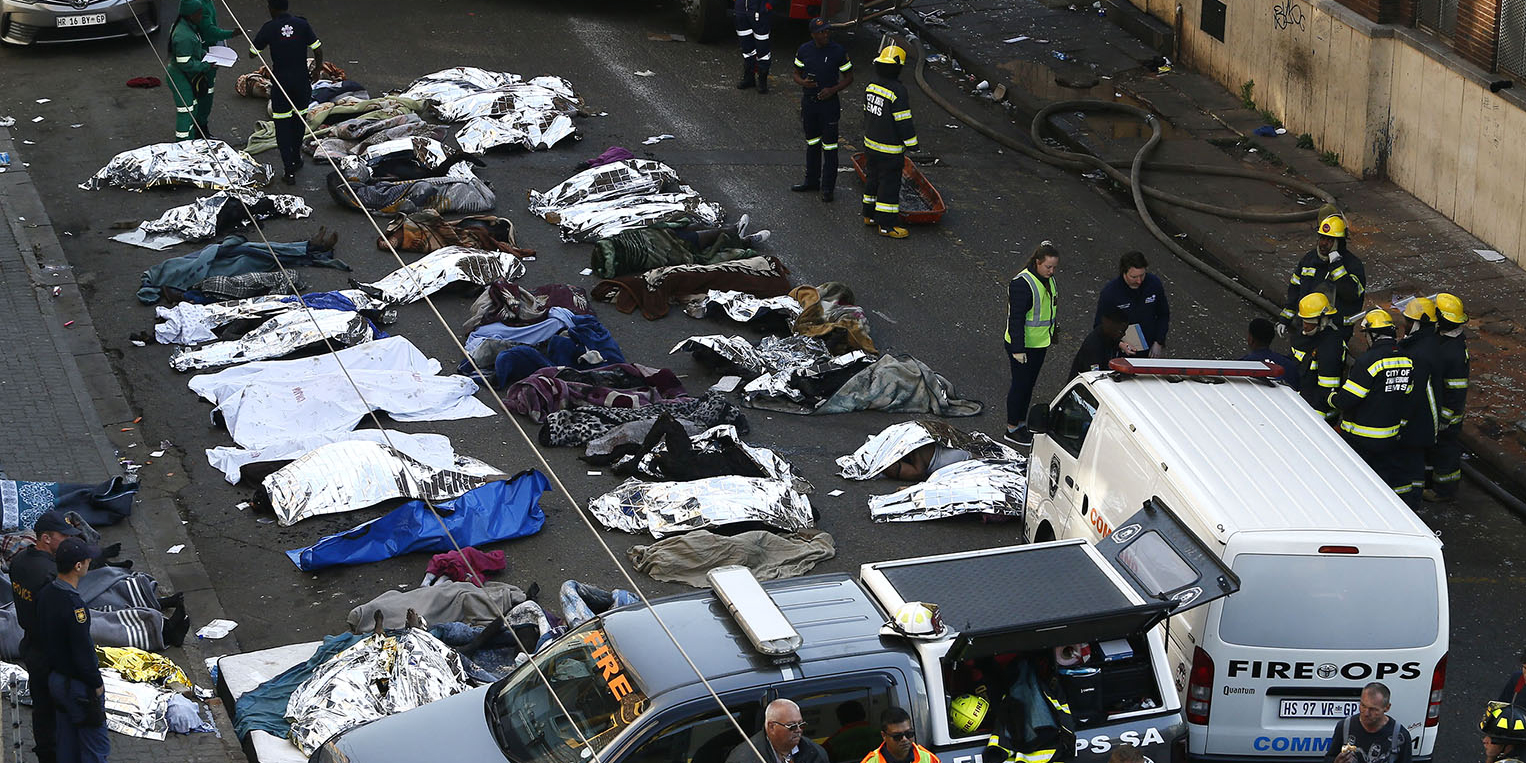 Bodies of some of those who died in the devastating fire are lined up, some covered in blankets, others already in body bags. (Photo: Felix Dlangamandla)
Bodies of some of those who died in the devastating fire are lined up, some covered in blankets, others already in body bags. (Photo: Felix Dlangamandla)
Imagine a caring response
Enough of that bullshit.
South Africa needs hope and solutions. So, following Van Graan’s lead I imagined how the government would respond to the fire if its actions were based on compassion, human rights and constitutional duties.
In my imagination:
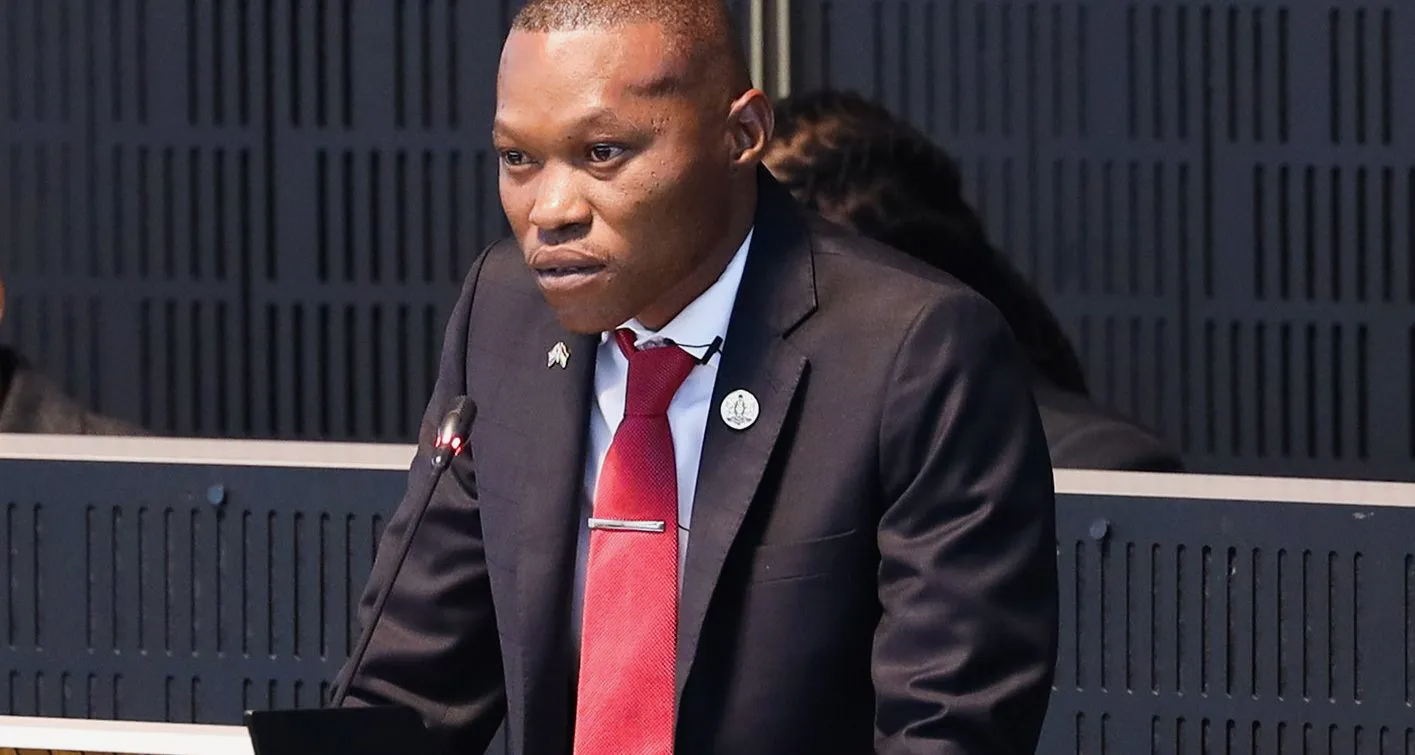 Joburg Executive Mayor Kabelo Gwamanda. (Photo: Gallo Images / Luba Lesolle)
Joburg Executive Mayor Kabelo Gwamanda. (Photo: Gallo Images / Luba Lesolle)
- The mayor of Johannesburg, Kabelo Gwamanda, would call a press conference with some of the survivors of the fire and issue an unreserved apology for the governance failures that led to the fire. He would commit to providing shelter, health, social and counselling services to victims as long as they need them;
- Side-by-side with survivors (children, people from foreign lands, women among them) Gamanda would announce the City’s full cooperation with the independent commission of inquiry set up by Gauteng premier Panyaza Lesufi to “investigate the prevalence of hijacked buildings in Johannesburg, what caused the deadly blaze in Marshalltown, and who must shoulder total responsibility for this tragedy”;
- The mayor and the premier would recognise that according to the Constitution “everyone has a right to have access to adequate housing”, and urgently convene a meeting with churches, NGOs and representatives of people who shelter in the inner-city buildings. They would listen to what the victims have to say about the causes of the crisis;
- Having listened, they would immediately convene another meeting to revive implementation of the Johannesburg Inner City Housing Strategy and Implementation Plan (read it here, it does exist!), a plan that takes into account people’s human rights and economic needs. According to people involved in drafting the plan, since being approved by the mayoral committee in 2017 nothing has been done to action it.
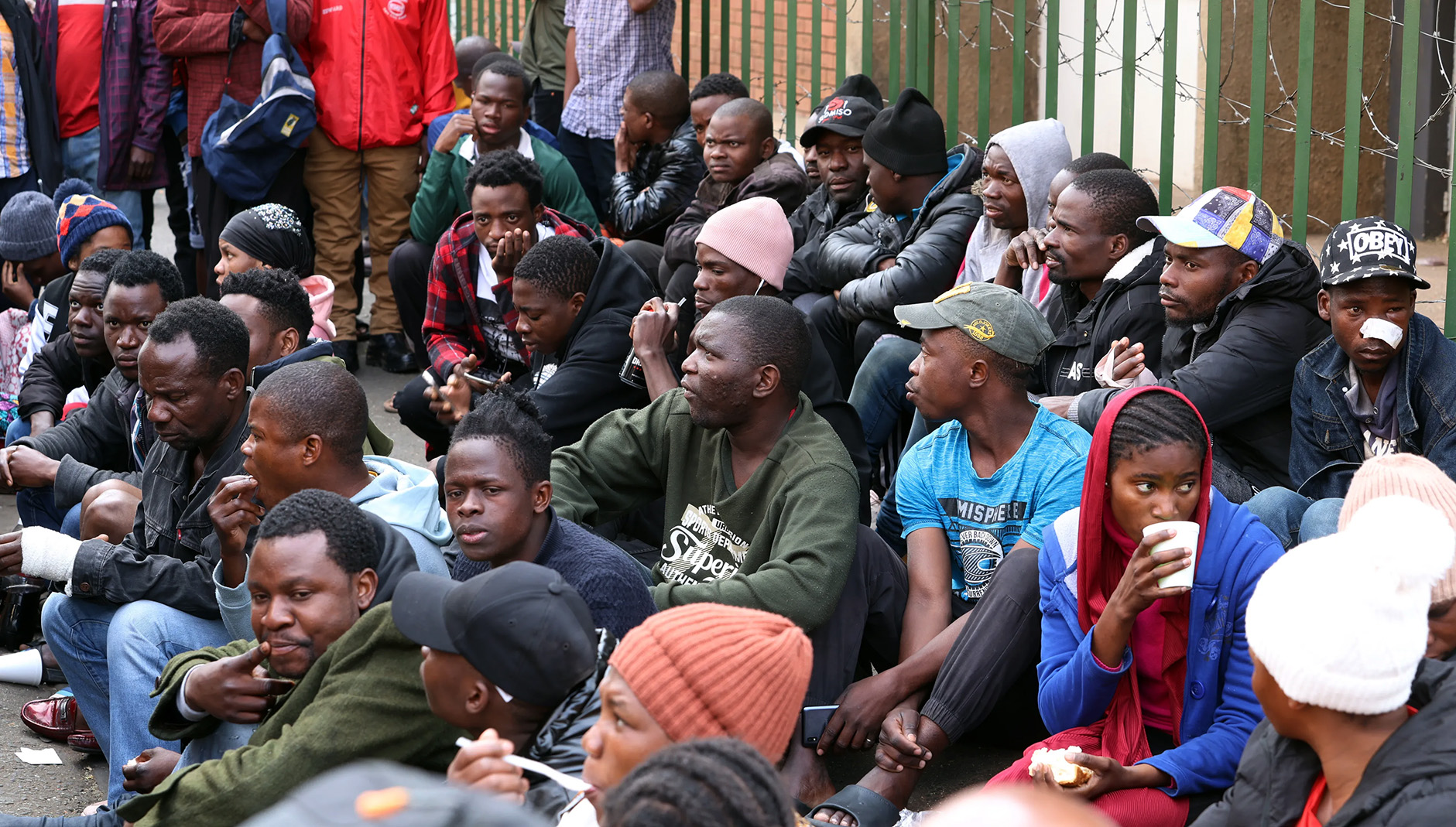 Survivors of the gutted building on the corner Alberts and Delvers streets in Johannesburg on 1 September, 2023. (Photo: Felix Dlangamandla)
Survivors of the gutted building on the corner Alberts and Delvers streets in Johannesburg on 1 September, 2023. (Photo: Felix Dlangamandla)
In my imagination:
- “During this period,” mayor Gwamanda, Home Affairs Minister Dr Aaron Motsoaledi and the provincial police commissioner would jointly announce that “there will be a moratorium on evictions and arrests of people purely because of their undocumented immigration status. Instead the JMPD and SAPS will be told to crack down on drug lords, slum lords, people traffickers and all those actually involved in criminal activity”;
- Andy Mothibi, the head of the Special Investigating Unit (SIU) – whose special investigation into “the affairs of the City of Johannesburg Metropolitan Municipality” (R17 of 2019) has still not been finalised four years after it was gazetted – will announce a timeframe for its completion. They will set a date for handing it over to the President to act on immediately;
- In addition, Lesufi will announce that he has asked the President to issue a new proclamation specifically tasking the SIU to investigate the Johannesburg Property Company, a department with a R1.1-billion annual operating budget that has itself been “hijacked” and repurposed for corruption.
Read: Graft probe into Joburg property company collapses after interference, intimidation | News24
In my imagination:
 Panyaza Lesufi on April 28, 2023 in Midrand. (Photo: Gallo Images / Luba Lesolle)
Panyaza Lesufi on April 28, 2023 in Midrand. (Photo: Gallo Images / Luba Lesolle)
- Lesufi will meet his provincial cabinet to approve a recommendation that section 139 of the Constitution be invoked in order to “maintain essential national standards or meet established minimum standards for the rendering of a service”; and the City of Johannesburg will be placed under administration;
- The administrator, carefully selected in consultation with civil society and experts, would be given the power to appoint a team made up of skilled people, including professional planners, business people, NGOs, etc, to come up with a rescue plan for the City which would be fully supported by the provincial and national government;
- A citizens’ oversight committee will be appointed by the mayor, made up of the civic organisations that have been at the forefront of demanding accountability and transparency in procurement and delivery;
- The leaders of all the political parties in the Johannesburg City Council would issue a declaration that they agree with the approach of the mayor, premier and president and announce that they intend to stabilise the City and, for a period, cease hostilities and instead work together on an emergency plan. The first line of their declaration reads: “We apologise for putting party and self-interest before the people of this great city. We recognise that this city belongs to all who live in it, and that we are its servants.”
Read more in Daily Maverick: Johannesburg Crisis Forum: ‘Take back Egoli: Reclaim the City’
Finally in my imagination:
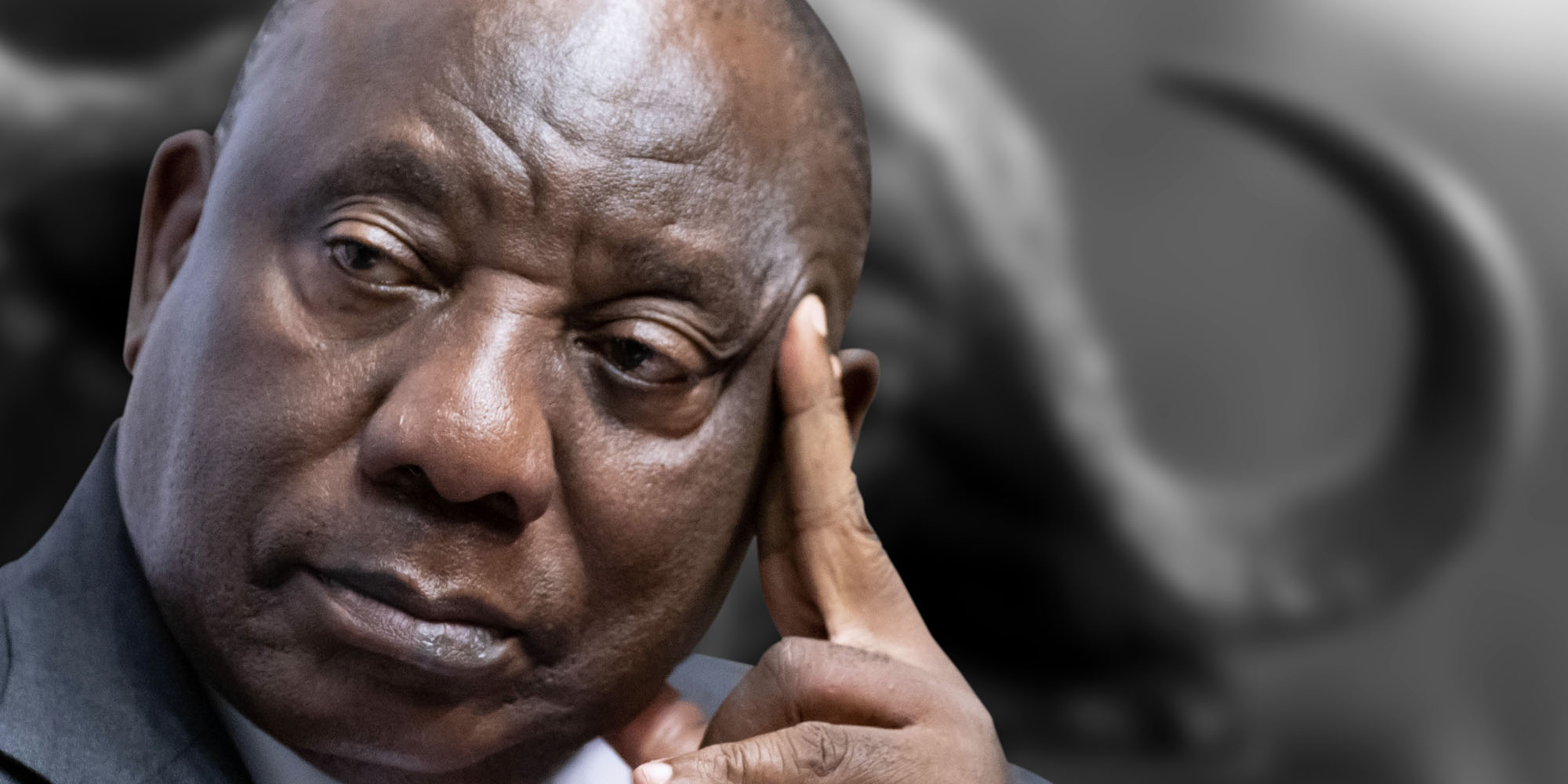 SA President Cyril Ramaphosa. (Photos: Jeffrey Abrahams / Gallo Images / iStock)
SA President Cyril Ramaphosa. (Photos: Jeffrey Abrahams / Gallo Images / iStock)
- President Cyril Ramaphosa will hold a family meeting to engage South Africans about migration and xenophobia. He will remind us how the South African nation was always a melting pot of ethnicities and nations, formed out of migrations of tribes and nations. He will explain how and why today Johannesburg is the focal point for migration and how a good government must plan for this (listen to this podcast discussion on migration to Joburg with Stephen Grootes). However, in the meeting he will also recognise how the ANC’s propping up of corrupt regimes, particularly those in Zimbabwe and Swaziland, has subverted democracy in those countries and prolonged the lives of corrupt and brutal governments, driving people to flee their home countries. In light of this Ramaphosa promises to immediately realign our foreign policy and partnerships with the human rights values in our Constitution.
Rational? Reasonable? Workable? Yes.
Too much to ask? Probably.
But we can imagine and dream! And if politicians and the government do not live up to our imagination in 2024 and 2026, we can vote them out. DM




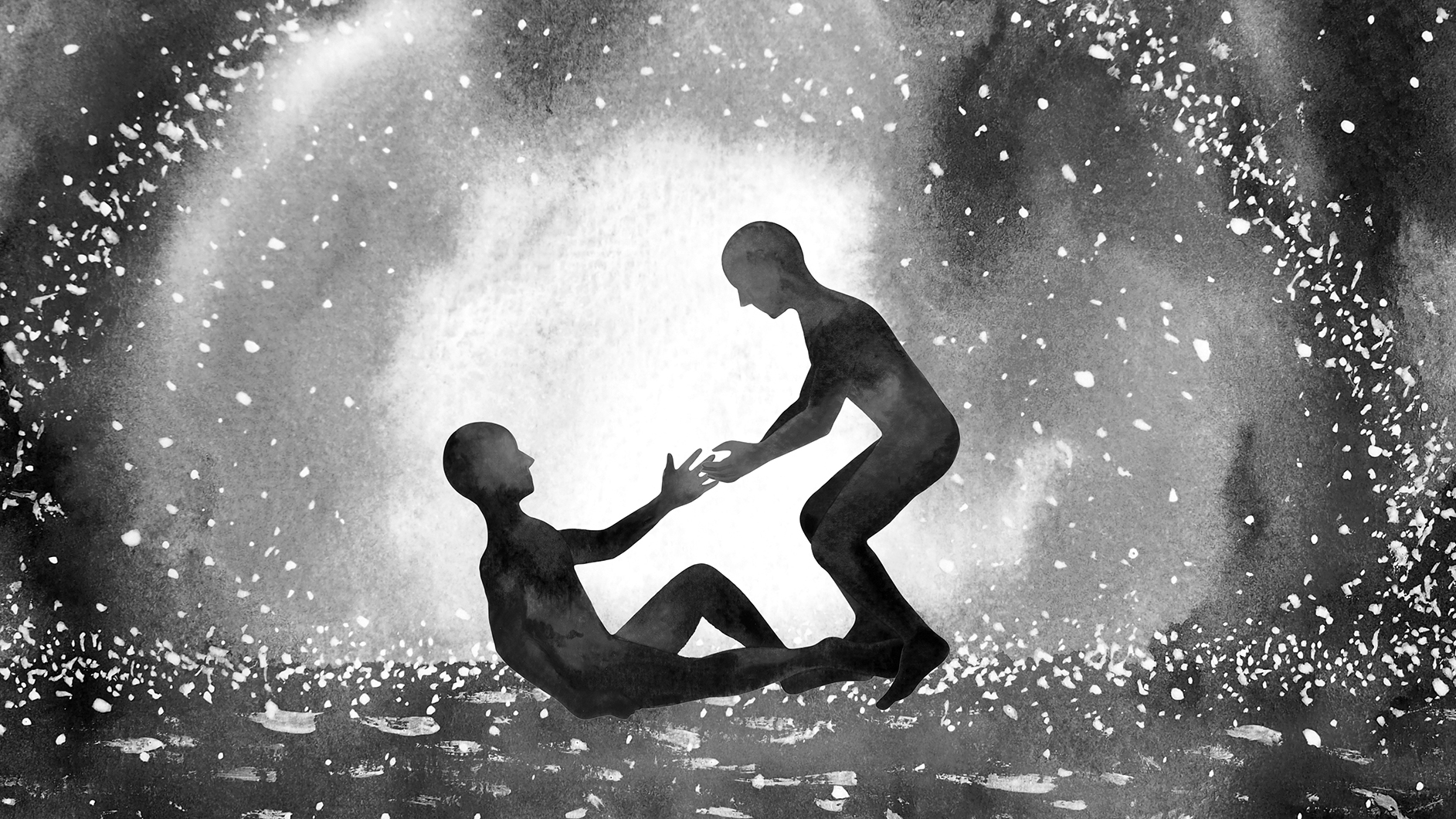 Illustrative image: SA President Cyril Ramaphosa. (Photos: Jeffrey Abrahams / Gallo Images / iStock)
Illustrative image: SA President Cyril Ramaphosa. (Photos: Jeffrey Abrahams / Gallo Images / iStock) 